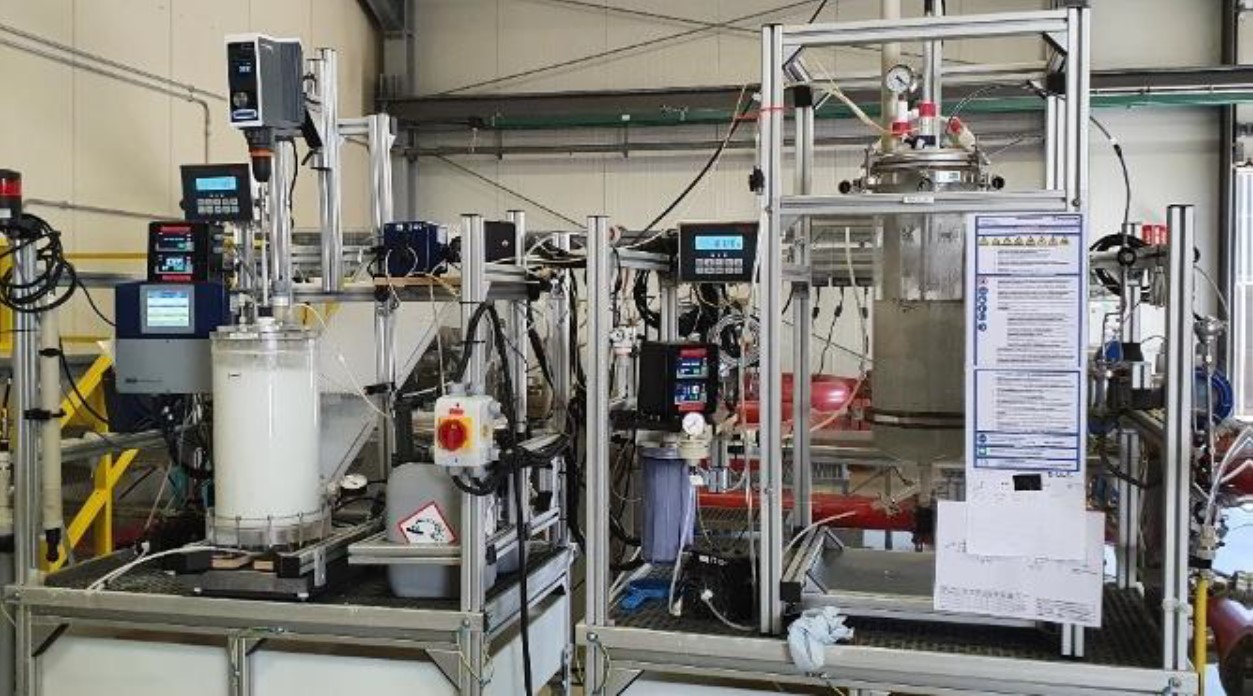BrineMine Project Looks at Geothermal Resources for Extraction of Energy, Raw Materials and Fresh Water
Northern Chile, one of the driest regions on the earth, has extensive geothermal resources. With innovative combined cycle power plants (CCPP), climate-friendly electricity can be generated and fresh water and mineral resources extracted at the same time. To this end, the German-Chilean research project “BrineMine”, funded by the German Federal Ministry of Education and Research, was launched in 2019 to develop strategies and technologies in this field. As part of the project, the Fraunhofer Institute for Solar Energy Systems ISE is developing the plant technology for subsequent industrial use. Part of the process chain has already been successfully demonstrated in operation in a geothermal power plant in the Upper Rhine Graben.

The technology developed for use in Chile is based on a novel combination of processes: First, heat from the geothermal brine is used to generate electricity in a conventional process. The brine, now cooled to a waste heat of approx. 60°C and still weakly concentrated, is then passed through a chemical precipitation reactor and freed from impurities, such as silicates. Subsequently the concentrate passes through a heat exchanger to utilize the remaining thermal energy. At approx. 25°C, pre-concentration is then carried out by reverse osmosis, with most of the fresh water being recovered. The brine concentrate is concentrated to the saturation limit by membrane distillation in order to extract the raw materials in a subsequent process. "The thermal energy demand of the membrane distillation process can be covered directly by the waste heat that was extracted previously from the power plant process," says project manager Dr. Joachim Koschikowski from Fraunhofer ISE. Additional fresh water is also produced.
Besides adapting the processes for silicate-rich water, the project focuses on the geochemical and geothermal potential of thermal springs in Chile, especially the geothermal sources in the Atacama Desert. This research is primarily carried out by the Department of Geothermal Energy & Reservoir Technology at the Karlsruhe Institute of Technology (KIT), headed by Prof. Dr. Thomas Kohl.
The Chilean industry showed great interest in BrineMine in May 2021 at a webinar organized by the German-Chilean Chamber of Industry and Commerce, which attracted 230 participants.
BrineMine is coordinated by Fraunhofer ISE. The other project partners are the Karlsruhe Institute of Technology (KIT), Geothermie Neubrandenburg GmbH (GTN), SolarSpring Membrane Solutions GmbH in Germany as well as Fraunhofer Chile and the Centro de Excelencia en Geotermia de Los Andes (CEGA) in Chile. The German Federal Ministry of Education and Research is funding the project with over 1.5 million euros.
DOWNLOADS
Last modified: